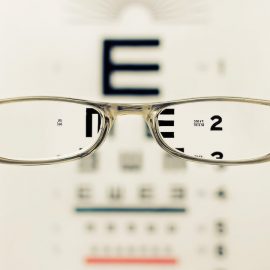

This article gives you a glimpse of what you can learn with Shortform. Shortform has the world’s best guides to 1000+ nonfiction books, plus other resources to help you accelerate your learning.
Want to learn faster and get smarter? Sign up for a free trial here .
What is psychotherapy? What are the benefits of psychotherapy?
Psychotherapy is a type of therapeutic method where a patient talks to a psychologist or psychiatrist to help them overcome problems or increase happiness. It’s one of the most well-known methods of therapy and has many benefits.
Below, we’ll look at four benefits of psychotherapy so you can decide if it’s right for you.
1. Psychotherapy Is the First Step to Recovery
Bessel van der Kolk, a Dutch psychiatrist and the author of The Body Keeps the Score, says that talking about trauma is a benefit of psychotherapy. Talking and acknowledging your trauma is a critical piece of the healing process for a few reasons. First, talking about your trauma breaks the silence and isolation of keeping it a secret; although many trauma survivors are inclined to suppress their traumatic memories in an attempt to gain control over the overwhelming emotions they bring up, failing to acknowledge your trauma and the reactions it triggers only inhibits you from managing it.
Second, talking about your experience and emotions relieves the incredible amount of energy and attention required to suppress them and allows you to work through your psychological wounds. Bottling up such overwhelming feelings doesn’t make them go away, and in the meantime, it saps your energy from engaging in the present and pursuing goals; as a result, you’re likely to feel bored and disengaged from life. Despite your efforts to suppress the trauma, your chronic hypervigilance is continuing to trigger stress hormones—causing physical ailments such as headaches, muscle pain, and digestive issues, as well as irrational emotions and behavior. You can’t deal with these symptoms until you’ve identified what’s causing them.
Third, when you open up to other people, you create the opportunity to feel heard and understood, which activates your limbic brain and helps in the physiological healing process. Sharing your experience with others can help break down the isolation of trauma and reconnect you with your community.
TITLE: The Body Keeps the Score
AUTHOR: Bessel van der Kolk
TIME: 40
READS: 20.7
IMG_URL: https://www.shortform.com/blog/wp-content/uploads/2020/01/body-keeps-score-cover.jpg
BOOK_SUMMARYURL: the-body-keeps-the-score-summary-bessel-van-der-kolk
AMZN_ID: B00G3L1C2K
Recovering From Trauma
Emotional Intelligence by Daniel Goleman says one benefit of psychotherapy is that we can learn to handle our emotions better. Post-traumatic stress disorder (PTSD) victims can also relearn a different, more normal response to their specific triggers. The amygdala will always retain its response to that initial emergency alert, but victims can work on developing an ability to suppress the emergency alert through their rational mind.
There are 3 stages of recovering from trauma:
- Regaining a sense of safety.
- This stage is about calming the triggered emotional circuits enough to be able to relearn a response.
- PTSD victims, during the traumatic event and in the episodes after, feel as though they are not in control of their emotions or bodies–so ideally, patients would find a way to regain a sense of control over what is currently happening to them. Medication can help in this arena–antidepressants help control the activation of the sympathetic nervous system.
- Relaxation techniques are another good tactic, allowing patients to counter the anxiety and agitation of triggered emotional circuits and find a sense of safety.
- Reviewing the details of the trauma and mourning the loss it resulted in.
- Retelling or revisiting the traumatic event in great detail in a safe environment allows patients to come to a more realistic understanding of the memory, as well as their response to it. Therapy helps them do this.
- Putting memories into words is, in a sense, gaining control over them and transferring them from the feeling system to the thinking system.
- Mentally reliving the traumatic event in a safe environment can teach the brain that those two things–safety and the traumatic event–can happen at the same time.
- Trauma always results in loss, so mourning is necessary. Mourning any loss is about acknowledging why that person or thing was important, and beginning to let go of the lost thing. Mourning about a traumatic event can help to let go of the trauma itself.
- Reestablishing a more normal life.
- Once a patient has reduced their physiological symptoms, feels more in control of how they respond to it, and can revisit the traumatic memory voluntarily or put it aside if they choose to, then the patient can start to rebuild their life and invest in strong relationships built on trust.
Once we’ve learned an emotional response to something, the emotion hardly ever changes or goes away—but we can learn to control that emotion and how we let it affect our actions.
This is why people have patterns that show up regardless of the situation–for instance, if we feel emotionally neglected by our parents and learn to hide our emotions to avoid the feeling of rejection, then as adults we will respond to any perceived neglect by hiding our emotions, whether the person neglecting our feelings is our boss, our spouse, or our children.
If PTSD patients can relearn their responses to traumatic events, then people with less intense but still impactful negative memories can also relearn how to respond. Psychotherapy can help in both instances.
- In one study, psychotherapy was just as effective as Prozac in treating patients with obsessive-compulsive disorders—both sets of PET scans showed a significant decrease in activity in the emotional center of the brain.
TITLE: Emotional Intelligence
AUTHOR: Daniel Goleman
TIME: 52
READS: 50.6
IMG_URL: https://www.shortform.com/blog/wp-content/uploads/2019/07/emotionalintelligence_cover.jpg
BOOK_SUMMARYURL: emotional-intelligence-summary-daniel-goleman
AMZN_ID: B000JMKVCG
2. Getting to the Root of Your Issues
In It Didn’t Start With You, Mark Wolynn explains that traumatic experiences compromise our ability to recall and process memories, which keeps us captive to their effects. Here’s why this happens: Some trauma is too difficult for us to process, like an unexpected death in the family, a miscarriage, or being in a war zone. When the trauma hits, our bodies go into survival mode. This causes our minds to go blank—not just at the moment but also later when we try to describe what happened. We just can’t find our words.
Bessel van der Kolk, who we mentioned earlier, has done extensive research showing that trauma blunts the parts of our brain that control speech and allow us to stay present at the moment. This diminishes our ability to accurately recall what happened.
But, Wolynn explains, traumatic memories don’t vanish. They get stored—in our bodies and our unconscious. Then, when anything even remotely similar to the trauma occurs, we often experience the same panic and distress as during the initial incident. This can influence our lives in unexpected ways. Maybe last year you were mugged while you were leaving work. Now you break out into a cold sweat near the end of every workday, you can’t bring yourself to go anywhere new unless someone goes with you, and you flinch when your partner reaches for you.
A benefit of psychotherapy is that once we can name the trauma and capture our experience and feelings in words, we can begin to loosen its grip. Until then, Wolynn says, healing will be elusive—focused only on managing symptoms rather than healing the pain at its source.
TITLE: It Didn't Start With You
AUTHOR: Mark Wolynn
TIME: 17
READS: 51.3
IMG_URL: https://www.shortform.com/blog/wp-content/uploads/2022/06/it-didn-t-start-with-you-cover.png
BOOK_SUMMARYURL: it-didnt-start-with-you-summary-mark-wolynn
AMZN_ID: XYZ
3. You’ll Learn to Accept Your Feelings
Attending psychotherapy isn’t just for understanding your feelings—it’s also for accepting them. Whether you feel depressed or angry, there’s no shame in your emotions. Everyone is human and everyone has these emotions. Talking about your experiences and your feelings is one benefit of psychotherapy that can help you heal.
Below we’ll look at why knowing your emotions is important for your health, and how a healthy therapist/patient relationship can make the patient’s recovery process easier.
Knowing Your Emotions
Emotional Intelligence says that self-awareness is the ability to recognize a feeling as it’s happening to you. Being able to monitor our feelings as they’re occurring helps us understand ourselves and our psychology. The more certain we are about our feelings, the easier it is to make personal decisions.
People who know their emotions are aware of their moods as they happen but can be mindful of how they deal with them. They’re more sure of their boundaries since they know how they’ll feel. They tend towards a positive outlook on life since they know they can manage whatever moods are thrown at them. They don’t dwell on bad moods and can get out of ruts faster. They can be mindful of their emotions and manage them successfully.
The goal is to be self-aware about our emotions, but most people deal with their emotions in one of two unhealthy ways:
- Engulfed. People who deal with emotions this way aren’t aware of what’s happening to them. Their moods shift often and overpower them. They do little to change their feelings and feel out of control often.
- Accepting. These people are more clear on what they’re feeling, but they also don’t feel like anything needs to change. They’re either in good moods, so they don’t have any motivation to change their moods, or they’re in bad moods but are resigned to feeling like there’s nothing they can do about it.
Stages of Emotional Liberation
In Nonviolent Communication, Marshall B. Rosenberg says that when people begin to focus on identifying and expressing their own emotions, they often pass through three stages: “emotional slavery,” “the obnoxious stage,” and “emotional liberation.”
- In stage 1 or “emotional slavery,” we feel responsible for other people’s emotions and engage in “people pleasing” to keep everyone around us happy (often at our own expense). If we can’t “fix” other people’s negative emotions, it feels like a personal failure and creates overwhelming distress. To cope with that distress, we often put distance between ourselves and the other person by labeling them as “needy.”
- In stage 2 or “the obnoxious stage,” we’re beginning to wake up to the reality that trying to meet everyone else’s needs at the expense of our own is making us miserable. In this stage, we might overcompensate by adopting a “not my problem” attitude and refusing to meet any needs of other people (hence the “obnoxious” label).
- In stage 3 or “emotional liberation,” we’re able to provide genuine care and empathy to others while still meeting our own needs. We take full responsibility for our own feelings and no longer feel responsible for the emotions of other people. Meeting our own needs first allows us to give to others purely out of compassion rather than guilt or obligation. In other words, focusing on ourselves first allows us to help others more wholeheartedly than if we prioritized their needs over our own.
- You can think of this as the emotional equivalent of airplane safety demonstrations that emphasize putting your own oxygen mask on before assisting others. If you pass out from lack of oxygen (or burn out by not meeting your own needs in general), you won’t be able to help anyone else.
Using Nonviolent Communication in a Therapy Setting
Many people think a benefit of psychotherapy is to tame their inner critic. Today, most therapists are trained in methods that are compatible with Nonviolent Communication, but that wasn’t always the case. Until the mid-20th century, clinical detachment was the cardinal rule of psychotherapy. Therapists were trained to keep their feet firmly planted in the realm of analysis, not empathy, and to think of themselves as a mirror—an inanimate object that reflects clients’ feelings back to them in an organized way.
This practice continued until prominent psychologists began to question whether clinical detachment was really the best way to help someone deal with emotional difficulties. They worried that the hierarchical patient/therapist relationship prevented therapists from being authentically present with their clients, which in turn prevented clients from feeling fully seen and heard. When clients expressed vulnerability, they were met with cool detachment, which often discouraged clients from sharing more.
Psychology has evolved since that time, and modern graduate programs now train aspiring therapists to respond to their clients with empathy and to focus on feelings instead of analyzing and diagnosing. This isn’t universal—in medical contexts where a particular diagnosis determines treatment options or insurance coverage, psychiatrists and psychologists often spend more time debating diagnoses than empathizing with a person’s feelings.
There is a big difference between the diagnostic mindset and the Nonviolent Communication mindset. A psychologist who is focused on diagnosing someone will think in terms of “What’s wrong with this person?” In the same situation, a psychologist practicing NVC would think, “What is this person feeling? What do they need? And which of my feelings and needs are being triggered by this situation?”
Showing up authentically like this requires the therapist to be vulnerable, which evens out the balance of power in the relationship. Therapists still need to be careful not to overshare or to take up clients’ time with their own issues, but overall, using NVC in a therapeutic relationship is helpful. Making a genuine human connection with a client in pain can be more powerful than years of detached analysis.
TITLE: Nonviolent Communication
AUTHOR: Marshall B. Rosenberg
TIME: 41
READS: 105.6
IMG_URL: https://www.shortform.com/blog/wp-content/uploads/2021/05/nonviolent-communication-cover.png
BOOK_SUMMARYURL: nonviolent-communication-summary-marshall-b-rosenberg
AMZN_ID: XYZ
4. You’ll Understand Your Relationships Better
Relationship therapy isn’t just for couples in struggling marriages. Even those who go by themselves to therapy can learn more about the relationships they have with others—whether it be with their significant other, parents, or friends. Let’s look at this last benefit of psychotherapy which focuses on the patient’s relationships.
Mending Broken Relationships
In It Didn’t Start With You, Wolynn recommends that you use insights about past grievances to mend broken relationships. You can do this even if your family members are deceased or if you don’t know where they are. Here are some options to do this:
- Have a conversation—either in your head or out loud—with your family member addressing their particular trauma: “I know you went through great pain when your husband died suddenly of a heart attack. I have been holding that pain, which has caused me to be needy and clingy in my relationship with my husband. I am surrendering this pain back to you now. Whenever I feel insecure in my relationship, I will breathe in your love and support.”
- Express gratitude toward a parent at a level that feels authentic to you, either privately or in conversation with them—whatever you can muster. For example, you could say, “I am grateful to you for giving me life,” or “I have rejected you and blamed you for a long time. Now I am choosing to be at peace.”
- Imagine your parent saying something loving to you: “I did things to hurt you and I am sorry. Please accept the love I have for you.”
Wolynn clarifies that healing these relationships doesn’t mean excusing a parent’s behavior or even necessarily resuming any kind of ongoing connection with a parent. Rather, he says, healing requires dropping the anger-filled, accusatory stories we have about our parents. Releasing those stories isn’t about giving up or giving in for the benefit of our parents. It’s about freeing ourselves so we can move forward.
Ending Toxic Relationships
Whereas Wolynn says that mending broken relationships can allow you the freedom to move forward, Minimalism by Joshua Fields Millburn and Ryan Nicodemus says that sometimes it’s best to end relationships that are only causing harm.
We all change over time. The fact that someone has changed doesn’t mean they don’t care about you—just that they’ve changed.
People evolve, separately or together. You can’t expect a person to stay the same or to change the way you want them to. They’re not obligated to meet your standards.
Changing yourself, however, can lead to more positive relationships. For example, if you improve your diet and start exercising, people around you may follow suit. You can bring out the best in other people.
That said, occasionally you may have to end a relationship if someone’s beliefs and values change in a way that you can’t tolerate (for instance, they express racial prejudices you strongly disagree with). Terminating or changing the terms of your relationships is part of managing them.
Sometimes relationships just don’t work, or they stop working. Problematic relationships may include intimate relationships, close friendships, employee-boss relationships, and family relationships.
You can try repairing a valued relationship, but know that you can usually step away. For instance, when Joshua and his wife began having difficulties getting along with each other. They both worked to improve their relationship, including going to counseling, but in the end, it didn’t work and they eventually divorced. You don’t have to stay in a negative relationship—in fact, it’s not healthy to do so.
TITLE: Minimalism
AUTHOR: Joshua Fields Millburn and Ryan Nicodemus
TIME: 25
READS: 27.1
IMG_URL: https://www.shortform.com/blog/wp-content/uploads/2019/07/minimalism-cover.jpg
BOOK_SUMMARYURL: minimalism-summary-joshua-fields-millburn-ryan-nicodemus
AMZN_ID: B006I7DDPI
How to Reap the Benefits of Psychotherapy
To get the most out of psychotherapy and experience its benefits, you need to be open and honest with yourself and with your therapist. It can be difficult to open up when you’re in such a vulnerable place in your life, but talk therapy is a proven treatment for those who need it. In addition, you have to follow through with outside assignments, such as rebuilding relationships or writing in a journal, to make real progress toward recovery.
Are there any other benefits of psychotherapy that we missed? If so, leave them in the comments below.

Want to fast-track your learning? With Shortform, you’ll gain insights you won't find anywhere else .
Here's what you’ll get when you sign up for Shortform :
- Complicated ideas explained in simple and concise ways
- Smart analysis that connects what you’re reading to other key concepts
- Writing with zero fluff because we know how important your time is






